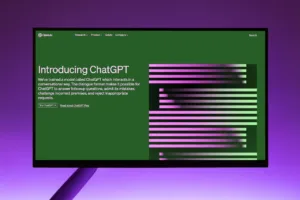
Atlanta-based airport retailer Paradies Shops has agreed to a $6.9 million settlement following a 2020 ransomware attack that compromised the personal data of 76,000 current and former employees. The class-action lawsuit, preliminarily approved by a Georgia federal judge, alleges the company failed to protect sensitive information including Social Security numbers and delayed breach notifications by eight months1.
Case Background and Technical Details
The October 2020 attack was attributed to the REvil ransomware group, known for targeting enterprise networks through vulnerabilities in remote desktop protocols and phishing campaigns. According to court documents, attackers maintained access to Paradies Shops’ systems for five days, exfiltrating employee records before deploying ransomware payloads2. The company operates over 1,000 stores across U.S. and Canadian airports, making employee data a high-value target for identity theft operations.
Security analysts note the breach followed a common pattern: initial access via compromised credentials, lateral movement through the network, and data exfiltration prior to ransomware deployment. The eight-month delay in notification violated multiple state breach disclosure laws, exacerbating the settlement amount. Forensic reports indicated the attackers specifically targeted HR databases containing W-2 forms and payroll information3.
Legal and Security Implications
The settlement establishes precedent for negligence claims in ransomware cases where exfiltration occurs. Court filings show plaintiffs successfully argued that Paradies Shops lacked adequate encryption for sensitive employee data and failed to implement network segmentation between retail operations and corporate systems1. This allowed attackers to pivot from initial point-of-sale systems to HR databases.
Comparable settlements include Retina Group of Washington’s $3.6 million agreement in 2023 and Lehigh Valley Health Network’s $65 million patient data breach resolution. The Paradies case differs by focusing exclusively on employee rather than customer data, setting new expectations for workforce information protection2.
Operational Recommendations
For organizations handling sensitive employee data, this case highlights three critical safeguards:
- Implement privileged access management for HR systems, with multi-factor authentication required for all database queries
- Conduct quarterly audits of data retention policies, ensuring Social Security numbers are purged when no longer needed
- Establish a 72-hour breach notification playbook with pre-approved communication templates for regulatory compliance
Network defenders should note that REvil operators frequently exploited unpatched VPN appliances during their 2020 campaign. The group’s tactics are documented in MITRE ATT&CK under techniques T1190 (Exploit Public-Facing Application) and T1133 (External Remote Services)3.
Industry Response and Future Outlook
Cybersecurity firm Halcyon.ai observed this settlement reflects a broader trend where “victims aren’t just recovering from attacks—they’re being judged, fined, and sued”2. The CyberWire podcast recently featured the case as part of growing legal consequences for delayed breach disclosures3.
With ransomware payments declining due to cryptocurrency tracking, analysts predict more lawsuits targeting exfiltration incidents. The Paradies settlement demonstrates courts will scrutinize both preventive controls and response timelines, particularly for employee data that enables downstream fraud.
References
- “Airport retailer agrees to $6.9 million settlement over ransomware data breach”. The Record. April 17, 2025.
- “Airport Retailer Faces $6.9M Lawsuit Settlement Following Ransomware Attack”. Halcyon.ai.
- “CyberWire Daily Podcast: April 18, 2025”. The CyberWire.






